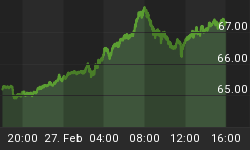This week marked six months since Congress passed the healthcare reform bill in what has become all-too-typical legislative chicanery. Those in power crafted a mammoth piece of legislation and rammed it through Congress under a dire sense of emergency. Insisting on time enough to read the bill was dismissed as dangerous and crazy in a time of crisis. We were told that if we really wanted to see what was in the bill, we would have to pass it first. I cannot imagine the founding fathers intended for Congress to legislate in this manner. I would think if a Member is not absolutely certain the entire legislation meets Constitutional muster, the default vote should be "no" in accordance with our oath of office.
But now that Congress has had six months to read the new law, there is a significant amount of buyer's remorse on Capitol Hill. The more constituents learn about the law, the more angry they become. 60% of Americans are now said to be in favor of repealing the entire thing. Unfortunately, it is much more difficult to repeal a law than to pass a bill.
I wrote a while back about the egregious provision to require businesses to issue 1099s for all transactions over $600 as a way to partially pay for it. I have cosponsored legislation to fix this issue, yet this is just the tip of the iceberg.
First of all, in spite of the administration repeating over and over that this legislation would not increase costs for Americans, they are now saying they knew all along that it would. The Congressional Budget Office (CBO) estimates that American families will see their premiums rise by an average of $2100 by 2016. The Wall Street Journal has reported that the cost of compliance is forcing some insurers to increase premiums by up to 20% as soon as next year!
Also, in spite of repeated claims from the administration that we could all keep our plans and doctors if we liked them, the administration's own officials are now predicting that won't be true for up to 117 million Americans who will lose their current plans. Major insurers are also dropping child-only plans because of mandates and price-fixing on such policies, leaving parents with fewer choices for their children, not more.
In addition, in spite of claiming this law would contain government costs, not increase them, administration actuaries now predict it will increase healthcare spending by over $300 billion. This additional spending comes along with doctor shortages, fewer choices and more taxes. Perhaps worst of all, increases in labor costs because of health insurance mandates are discouraging employers from hiring new workers and even triggering more layoffs.
Anyone with a basic understanding of Austrian economics could have predicted the unintended consequences of these new healthcare policies. Central planning never increases choices and quality or cuts costs as promised. Price controls and government mandates always create artificial scarcity. Healthcare is not a right, nor a privilege. It is a product, like food or clothing. As with any good or service, the free market regulation of supply and demand provides the optimum quality to the maximum number of people. Once we realize the problems we are trying to solve today were created by government intervention beginning in the 1960's, we can begin to put patients and doctors back in control of healthcare, rather than third party oligopolies and government bureaucrats. The sooner, the better.















